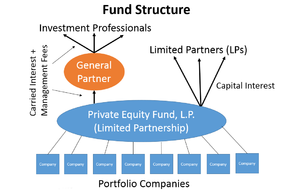
The first two plan tiers put a limit on billable clients, but not on invoices. QuickBooks offers a more integrated suite of features compared to Xero. With features like automatic expense tracking, a user-friendly quickbooks payroll review interface, and extensive reporting options, QuickBooks aims to streamline financial management for small businesses. It’s particularly well-suited for businesses who prioritize an all-in-one solution. This versatile accounting software is designed to help businesses manage their finances effortlessly. It features a range of tools for invoicing, expense tracking, payroll, and tax preparation.
The Business category is where you’ll find invoicing, bills to pay, purchase orders, and products and services. The invoices option in Xero displays a nice summary view of all invoices and their current status. You can send invoices and quotes, enter bills and reconcile bank transactions for $30/month. If you need to track income, expenses, invoices, and time, you’ll likely be paying $35/month for QBO or $60/month for Xero. For the top plans, you’ll get similar functionality from both providers. The chart of accounts is easy to manage, customize and track spend for each category.

Seek expert financial advice
The Bank Balance should ideally be pulled straight from the bank, therefore Xero’s Bank Feed features aren’t as appealing as QuickBooks Online’s. You must return to the Chart of Accounts, add the account, and then come back and add the Transaction from Online Banking. Xero and QuickBooks Online differ when it comes to Adding a New Account. For example, if it’s the first time you’ve paid for a product or service.
- QuickBooks Online and Xero are well-known cloud-based business accounting software solutions that are a favorite of growing companies due to their affordable pricing and scalability.
- It’s designed specifically for small businesses and offers invoicing, time tracking and expense management.
- Harsh is a data enthusiast with over 2.5 years of experience in research analysis and software development.
- Solid Bank Feed Systems are used in both of these Accounting Applications.
- Moving up to the more expensive plans will get you features such as inventory, custom user permissions, and accelerated invoicing, with all plans providing the basic functionality your business needs.
Xero vs QuickBooks Online: Overview
If you’re based in the US, your accountant’s main complaint might be lack of experience with Xero. QuickBooks is the market leader in the using cash flow surpluses for investment or to pay down debt US, so they will likely be used to working with that. Xero is more common outside of the US, and UK and New Zealand accountants in particular will likely recommend it. Read on for our summary of when QuickBooks tends to be a better Xero alternative based on your business and goals. Xero and QuickBooks both offer a good number of integrations in their respective marketplaces.
The base fee for both plans is half off for the first three months. Xero also lets you send quotes and estimates that can quickly pull up data on contacts, inventory, and pricing. You can set alerts to ensure no invoice slips through the cracks.
Tax Tools
The Enterprise Desktop plan offered by QuickBooks starts at $1,922 per year. Xero best suits medium to large businesses but works for all businesses. In addition, Xero has a far more user-friendly interface than QuickBooks, so its ease of use makes it the perfect choice for the self-employed and those with less accounting experience. Now that you’ve gotten a better sense of what Xero and QuickBooks Online have to offer, let’s take a closer look at how their features compare. The ability to integrate a software product with other applications can increase its functionality tremendously. Both Xero and QuickBooks Online offer excellent integration with hundreds of apps.
Company
Some of its features really stand out, such as its customer management system. QuickBooks Online takes the advantage when it comes to invoicing, offering six customizable invoice templates (compared to just one offered by Xero). It also offers mileage tracking, tax support, and (for a fee) bookkeeping services, which you won’t find with Xero. While Xero’s entry-level plan seems like the better deal when compared to QuickBooks, limitations on invoices and bills make it suitable for very small businesses or freelancers.
Xero also integrates with other business applications, such as payroll and inventory management systems. This makes it a versatile tool for small businesses that need to streamline their operations. QuickBooks is the leading accounting software for small businesses, designed to simplify financial management and empower growth. With how does accounts receivable turnover ratio affect a company a user-friendly interface and a comprehensive suite of tools, QuickBooks streamlines tasks like invoicing, expense tracking, and reporting, giving you a clear picture of your financial health. From automating payments to managing payroll, QuickBooks offers a scalable solution that can adapt to your business needs. The QuickBooks Simple Start plan costs $30 per month and supports one user, making it best for very tiny businesses or for a single freelancer.
Additional automation abilities let you select inventory items from a preset list, quickly duplicate a previous invoice, or set up automatic invoices for repeat orders. Plus, read receipts let you know when customers have seen an invoice and if it’s been paid. Xero’s only customer support options are an email system and a knowledge base. However, QuickBooks offers a more seamless experience for two big reasons.
QuickBooks and Xero both offer a lot of features, including all the core abilities that make these two options the best small business accounting software around. FreshBooks is one such option that has gained popularity in recent years. It’s designed specifically for small businesses and offers invoicing, time tracking and expense management. QuickBooks is available both online and via desktop and is ideal for businesses that outsource their accounting tasks to a bookkeeper or accountant. This is because QuickBooks only allows up to 40 users for its highest-tiered plan, and even then, some plans require every user to pay for their own account.



